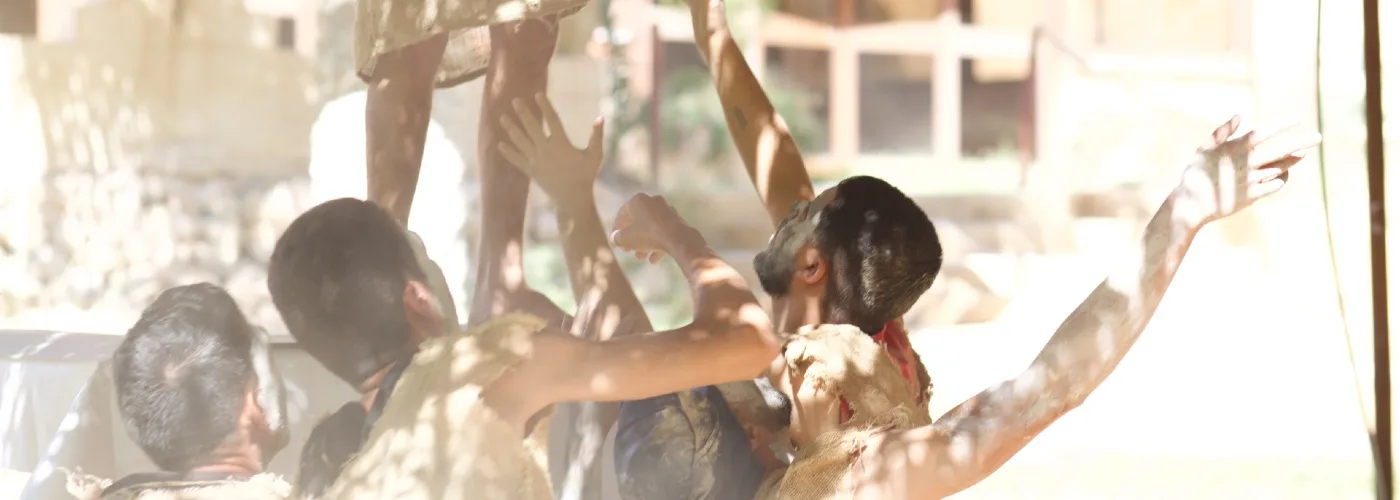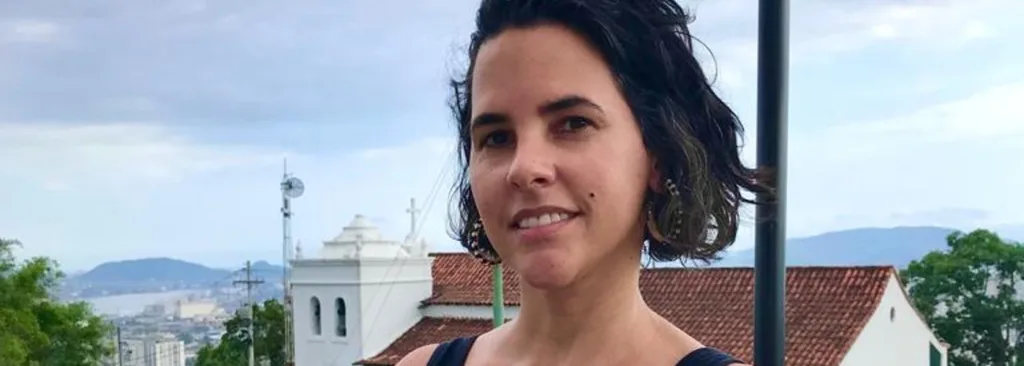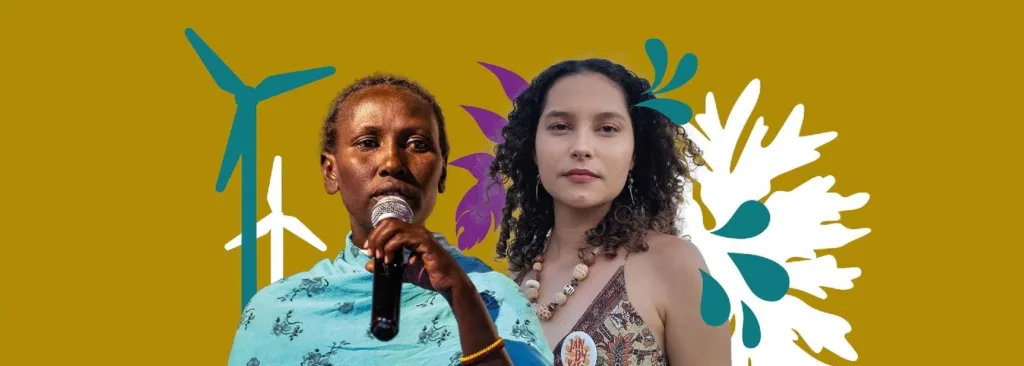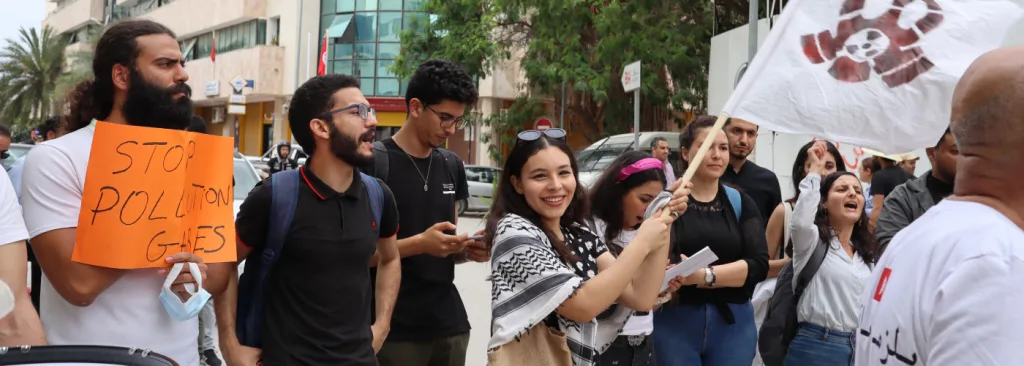Publicizing water inequality in Tunisia through theater
We interviewed Bilal Anezi, a member of Sarkhat Mubdie (Creative Cry), an amateur troupe that travels around Tunisia to tell people about water scarcity in their region through theater. Hivos supports them through the Voices for Just Climate Action program. The group performed at the The Resistance Climate and Art Festival in Gabes organized by Hivos and partners last September. We asked Bilal about the connection between water scarcity, climate change and social justice. With contributions from: Karim Anezi, Hamza Barhoumi, Hamza Sebai and Ramzi Zaidi.
“Art is a great way to convey our pain to others, more so than a workshop or an academic study would.”
Why did you create a play about water?
It was water that inspired us to make the play in the first place. We are from the town of Hajeb Layoun, in Kairouan, a region that is famous for its natural sources of water. The water used to be very good, but recently we’ve noticed a decline in its quality. It smells bad and has a strange color. This is because the water pipes are degrading.
The water has become so bad, in fact, that we can’t use it to cook or even bathe. So, people have resorted to buying water from private companies. When there aren’t any water suppliers nearby, people have to go to another village ten kilometers away to get some.
But if the region is famous for its water, why can’t you get it from its source?
Well, first of all because we’re having many more droughts than before due to climate change. Rainfall is sporadic, and springs are running dry. Another thing, which is actually catastrophic, is that large enterprises are also pumping water from the ground. For example, large-scale agricultural activity, which the region is full of. Did you know 80 percent of the water in Tunisia goes to agriculture?
There are also four companies that pump fresh water and bottle it for the sale. That also creates a water shortage. If local people want water now, they have to buy it from these companies.
Why did you decide to make a play about the situation?
As a group of young people, we felt we had to do something. Theater seemed a good way to express our frustration and anger about the situation. With a play you can raise your voice in an artistic way. Art is a great way to convey our pain to others, more so than a workshop or an academic study would.

Have you acted professionally before?
No, these issues inspired us to try theater for the first time. I was in college studying history, but now I work during the day as a waiter. Two of the other actors are still studying.
Can you describe the play a bit?
Certainly. There is a duality in the play: hope and despair. It’s divided into four parts. The first is about the hope of finding water, while in the second we see the illusion of hope created by the authorities. An actor stands on a table, representing the government, a president or a god, and gives just a trickle of water to thirsty people.
In the third part we see people becoming selfish and violent. They start fighting over water and some end up killing each other. The final part shows the remorse of others over the killing. In a crisis like this, we need to show solidarity with each other. That’s the most important thing: standing unified, together.
What are your plans for the future?
Well, our ambitions are growing. Every time we perform the play, it gets better. We’re hoping to share our story with all of Tunisia, and afterwards abroad as well. The rest of the world! Why not?
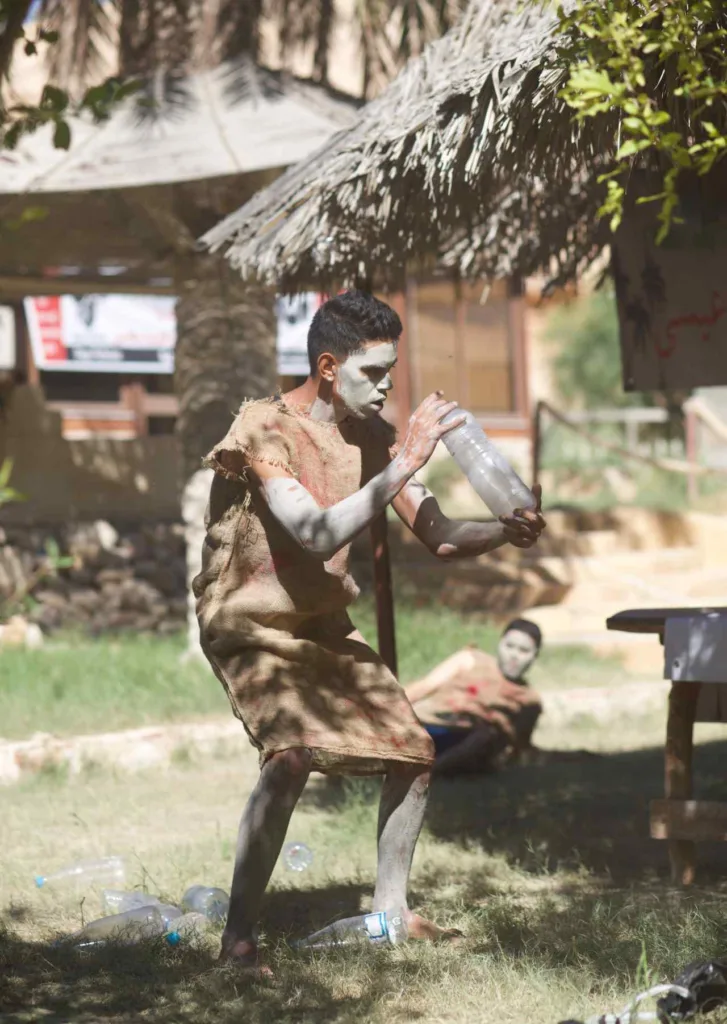
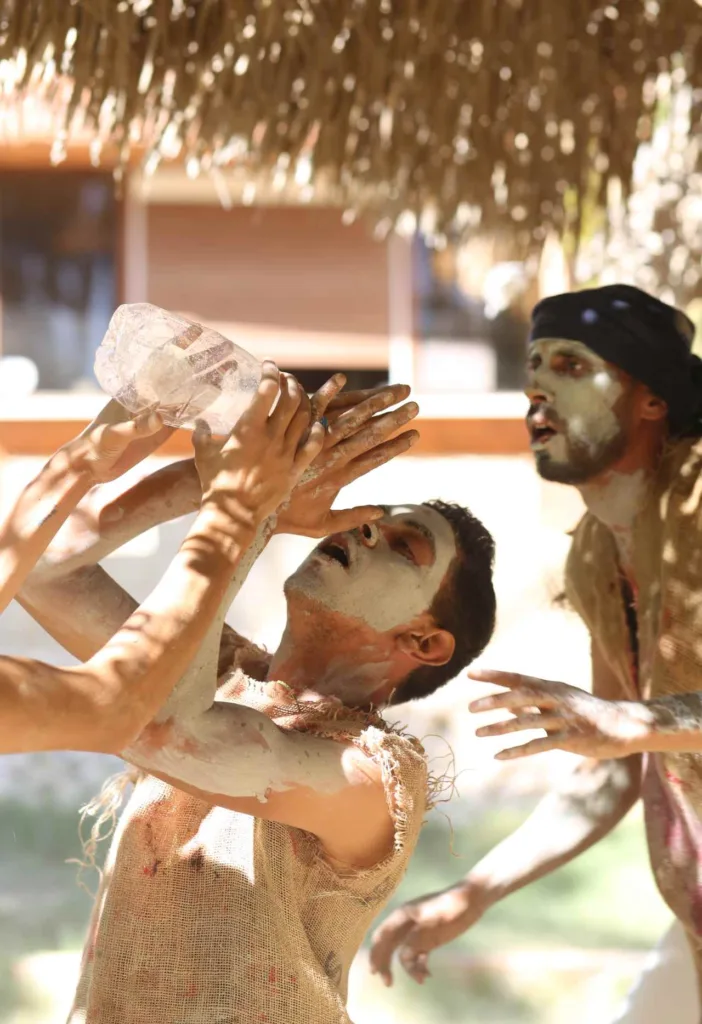
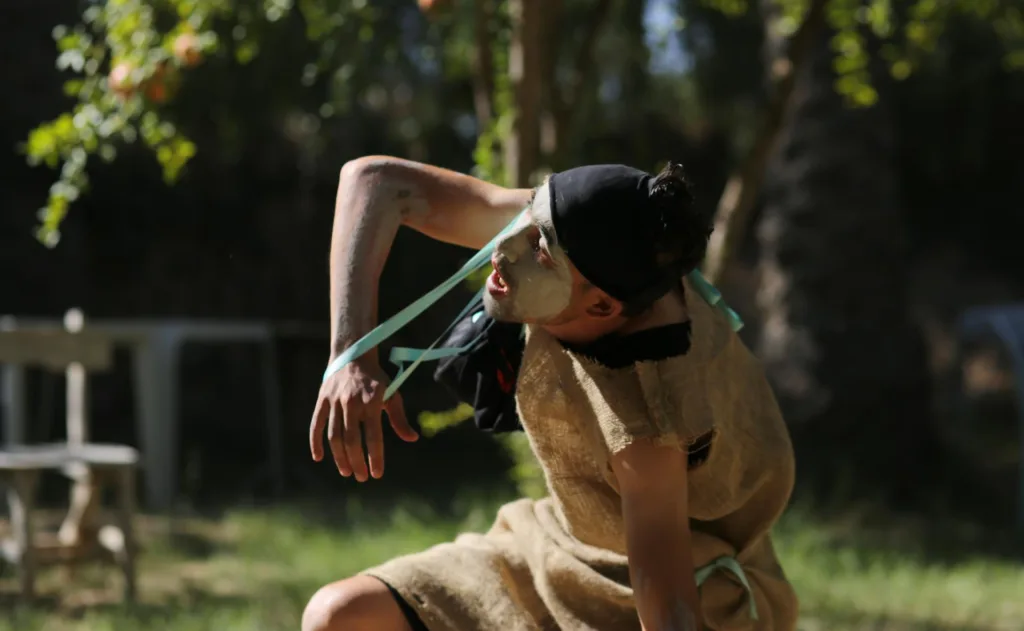
About Voices for Just Climate Action
The Voices for Just Climate Action (VCA) program, initiated in January 2021, is a lobby and advocacy program implemented by an alliance led by four strong Southern CSOs: Akina Mama wa Afrika, Fundación Avina, Slum Dwellers International and SouthSouthNorth, and two Global CSOs: Hivos and WWF-Netherlands. It falls under the Dutch Ministry of Foreign Affairs’ five-year strategic partnership: “Power of Voices.” The program aims to ensure that by 2025, local civil society and underrepresented groups will have taken on central roles as creators, facilitators, and advocates of innovative and inclusive climate solutions.

